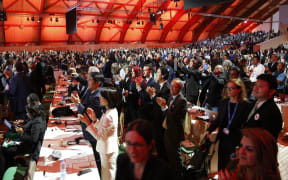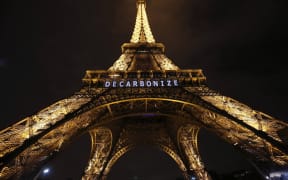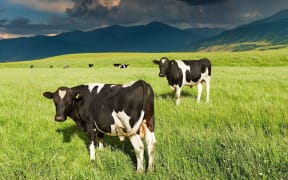Greenpeace New Zealand says the climate change agreement forged in Paris over the weekend does not go far enough to protect Pacific countries from catastrophic events caused by climate pollution.
The agreement aims to keep global temperature rise "well below" two degrees Celsius, with an aspirational target of limiting the rise to 1.5 degrees.
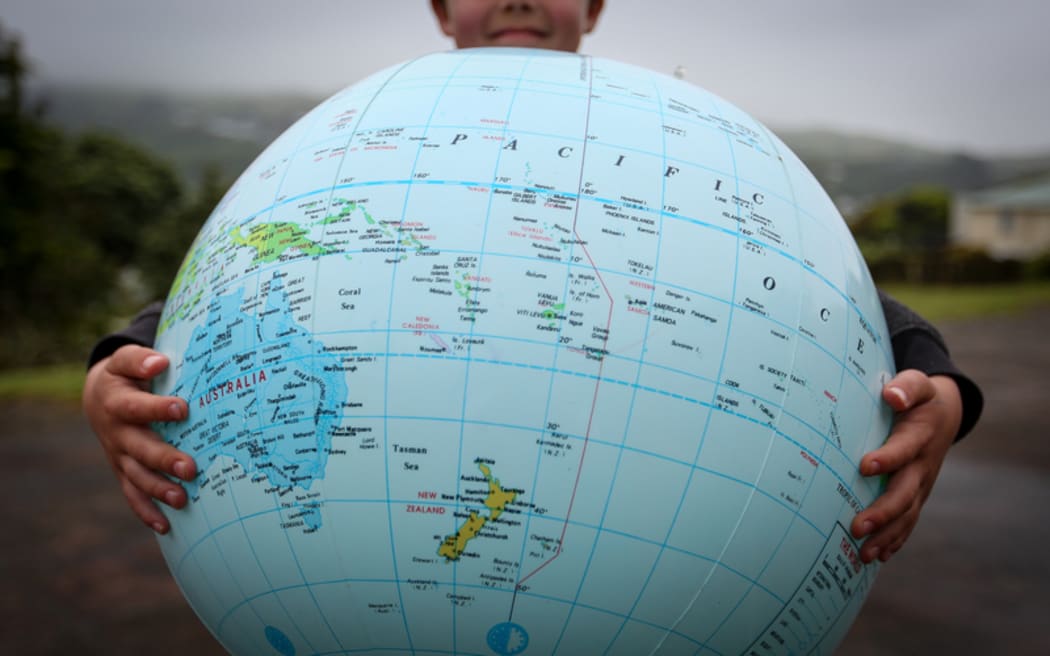
Photo: RNZ / Alexander Robertson
Some aspects of the agreement will be legally binding - such as submitting emission reduction targets and the regular review of those goals.
The Greenpeace executive director, Russel Norman, says targets set by nations will not be binding, which is of concern.
He says the agreement could mean the Pacific is still on track to seeing a number of vulnerable countries go under water.
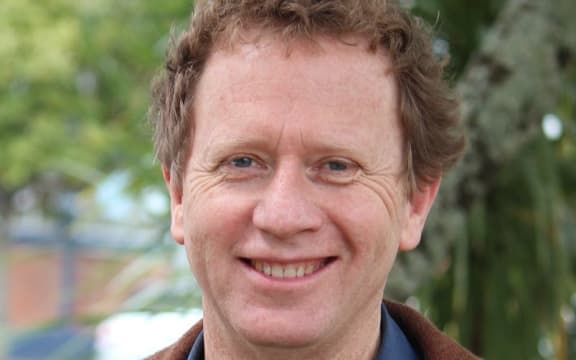
Greenpeace New Zealand executive director Russel Norman. Photo: Greenpeace
"It will, I think, require enormous effort by people in civil society all around the world to put pressure their governments and on businesses to dramatically decarbonise if we are going to avoid a pretty catastrophic future for some Pacific nations that are low-lying."
Dr Norman says Pacific nations were also unable to get the big polluters to make binding commitments on finance or getting reparations for the losses they will suffer from sea level rise.
He says the agreement could mean the Pacific is still on track to seeing a number of vulnerable countries go under water.
"It will, I think, require enormous effort by people in civil society all around the world to put pressure their governments and on businesses to dramatically decarbonise if we are going to avoid a pretty catastrophic future for some Pacific nations that are low-lying."
The WWF Pacific conservation director, Sally Bailey, says the challenge is now ensuring the agreement comes into action as soon as possible.
She says the public must hold governments to account, and push for financing for adaptation and loss and damage, which she says will be vital for the Pacific's survival.
"This is almost like the start of the process. We need to put a lot more effort in to secure a pathway that limits warming to 1.5 degrees. So we see it very much that we now have to be effective at lobbying, advocacy work, going back to those governments that have made commitments, to make sure that they happen."
The Secretariat of the Pacific Regional Environment Programme says COP 21 is a significant improvement on other climate change agreements.
Its director general, David Sheppard, says overall, the agreement is good news for the region.
"We would have preferred 1.5 degrees. I think that this agreement we can live with. And the other elements particularly the peaking of gas emissions as quickly as possible to achieve the balance between the sources and sinks of greenhouse gases in the second half of this century, clauses on finance and inclusion of reference to loss and damage I think are positive elements as well."
To cap global temperature rise at two degrees, carbon dioxide emissions would have to drop to zero by 2075.
